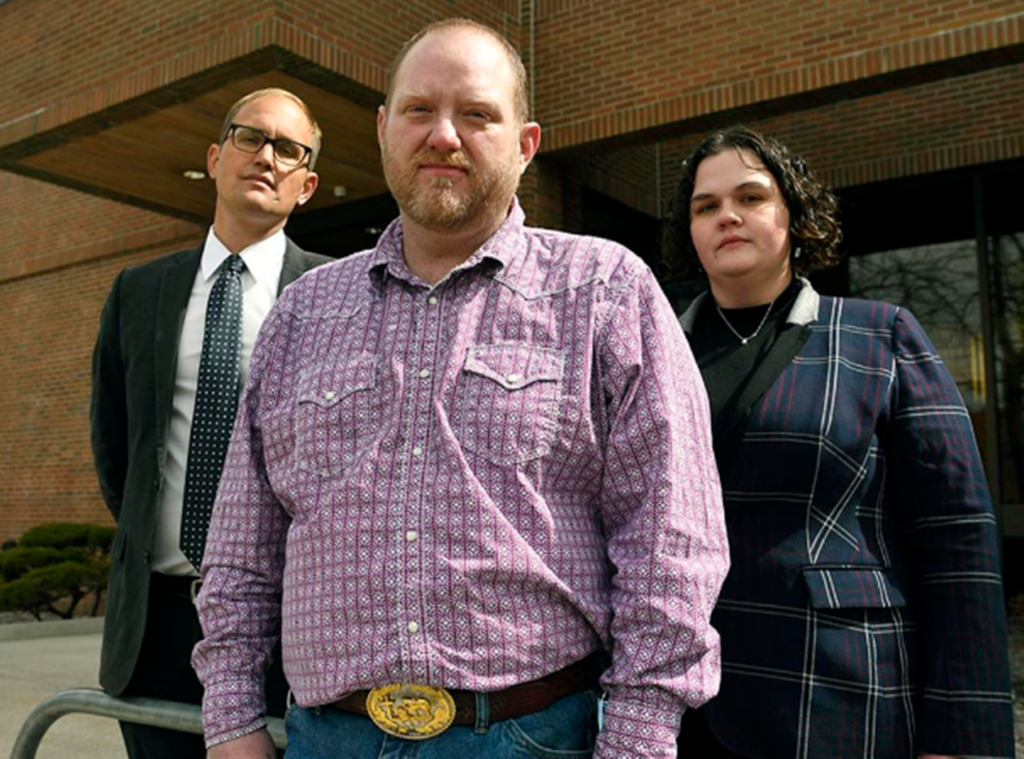
A Montana man will not be forced to register as a sex offender in relation to a 1994 conviction under sodomy laws ruled unconstitutional in 2003 for having consensual gay sex with two 16-year-old boys, per a federal judge.
In a ruling Tuesday, U.S. District Court Judge Dana Christensen ruled that the state's requirement that Menges remain on the sex offender registry was unconstitutional and that LGBTQ people engaging in consensual sexual activity do not pose a threat to public safety.
“Montana has no rational basis for forcing Menges to register as a sexual offender on the basis of a 1994 Idaho conviction for engaging in oral or anal sex with a 16-year old male when he was 18, but not forcing those to register as a sexual offender who were convicted in Idaho in 1994 at the age of 18 for engaging in vaginal sex with a 16-year old female,” Christensen said in his ruling.
Randall Menges, 45, was 18 years old and living in Idaho in 1994 when he was convicted for having gay sex under Idaho's Crimes Against Nature law. The statute, like other sodomy laws, criminalizes consensual anal and oral sex and historically have been used to indirectly criminalize LGBTQ communities. The U.S. Supreme Court ruled in the 2003 case Lawrence v. Texas that sodomy laws were unconstitutional.
Menges served seven years in prison with additional probation time and was forced to register as a sex offender in Idaho. That requirement continued when he moved to Montana roughly a decade after his conviction. Despite repealing its sodomy laws in 2013, Montana still required those with sodomy convictions in a state that required them to register as sex offenders to do the same in Montana.
The Montana Attorney General's Office filed an appeal shortly after Christensen's ruling.
“This order weakens our state's sex offender registry law and opens it up to more attacks from out-of-state lawyers who are more interested in politics than the safety of Montana children,” Montana Attorney General Office press secretary Emilee Cantrell told The Missoulian.
“I'm grateful to the court for putting an end to my nightmare,” Menges told The Missoulian following the decision. “It is unconscionable that in 2021, Montana would still put people convicted of having gay sex on the sex offender registry,” said Matthew Strugar, one of Menges' attorneys. “This kind of overt, state-sanctioned homophobia would have been surprising 30 years ago. Today, it is shocking and it is unconstitutional.”
The Montana Attorney General's Office, which served as the defendant in Menges' lawsuit, opposed Menges' request throughout the case, citing the statute honoring the requirement to register practices in other states with sodomy laws still on the books. The Montana Attorney General's Office filed an appeal shortly after Christensen's ruling.
“This order weakens our state's sex offender registry law and opens it up to more attacks from out-of-state lawyers who are more interested in politics than the safety of Montana children,” Montana Attorney General Office press secretary Emilee Cantrell told The Missoulian.
Menges' fight doesn't end with Tuesday's ruling or the subsequent appeal. The Butte, Mont. citizen is also a plaintiff in a lawsuit questioning the constitutionality of Idaho's Crimes Against Nature law. Strugar and the American Civil Liberties Union are part of that lawsuit as well.
Gay Sex Previously on Towleroad
Screenshot of photo by Tom Bauer/The Missoulian



